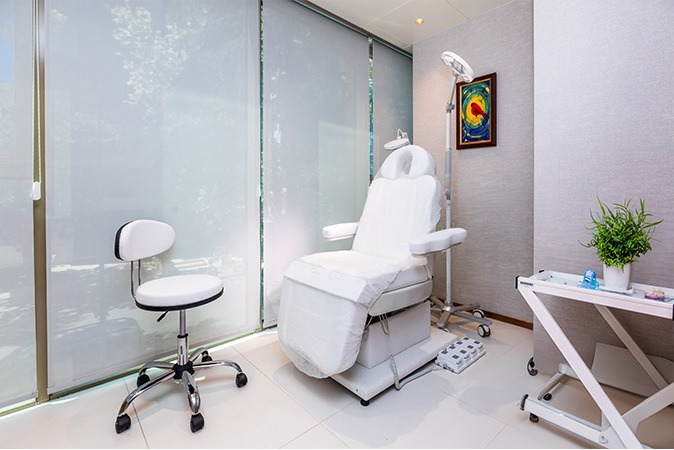
Hip Replacement Surgery in Kenya
The hip joint is the most significant joint of the human body besides the other joints. It bears the body weight and makes us run, jump, walk, and helps us climb the stairs. However, relentless hip pain would not allow you to do your day-to-day activities. In that case, you must seek a medical expert for orthopedic care for your hip, hip replacement surgery in Kenya, and therapy, to get going and enjoy your activities.
There are many best orthopedic hospitals in Kenya which provide good quality surgery at an affordable cost for Hip Replacement Surgery in Kenya.
If you have to choose hip replacement surgery in Kenya, you must be very careful in planning and selecting the best procedure for hip replacement. One of the prominent factors that go for hip replacement is a consideration for Hip Replacement Surgery price in Kenya.
Hip Replacement Surgery Cost in Kenya
Hip replacement cost in Kenya differs for a varied choice of reasons. It comprises the selection of the surgeon, facility available at the hospital, diagnostic tests, what surgical implants are selected, location, and the complication of the surgery involved.
| Hip Replacement in Kenya | Average Cost in USD | Average Cost in Kenyan Shilling (KES) |
| Total Hip Replacement | $9,000 | Ksh 1,053,000 |
| Partial Hip Replacement | $6,500 | Ksh 760,500 |
| Hip Resurfacing | $4,500 | Ksh 526,500 |
| Staged Hip Replacements | $6,000 | Ksh 702,000 |
The average cost of total hip replacement surgery in Kenya is $9,000. The Partial Hip Replacement surgery fees in Kenya are $6,500, while the Hip Resurfacing price in Kenya is $4,500, and the last is Staged Hip Replacements cost in Kenya is $6,000.
Hip Replacement Surgery Costs in the Cities of Kenya
| Hip Replacement in Kenya | Average Cost in USD | Average Cost in Kenyan Shilling (KES) |
| Nairobi | $9,000 | Ksh 1,053,000 |
| Mombasa | $9,900 | Ksh 1,158,300 |
| Nakuru | $9,720 | Ksh 1,137,240 |
| Eldoret | $10,080 | Ksh 1,179,360 |
| Kisumu | $10,170 | Ksh 1,189,890 |
In the table above, the hip replacement surgery comparisons of the top five cities of Kenya are mentioned, where the average Hip replacement surgery cost in Nairobi is around $9,000. In Mombasa, the average price for Hip replacement surgery is $9,900. The average fee for Hip replacement surgery in Nakuru is $9,720 and for average cost for Hip replacement surgery for Eldoret is $10,080, while the average price for Hip replacement surgery in Kisumu is $10,170.
Hip Replacement Surgery Comparison
| Country | Cost in (USD ) for Single Hip | Cost in Kenyan Shilling (KES)for Single Hip | Cost in ( USD)for Double Hips | Cost in Kenyan Shilling (KES) for Double Hips |
| India | $6,000 | Ksh 704100 | $9,500 | Ksh 11,16,725 |
| Thailand | $8,650 | Ksh 10,16,807 | $14,000 | Ksh 16,45,700 |
| South Korea | $15,999 | Ksh 18,80,682 | $18,000 | Ksh 21,15,900 |
| Hungary | $19,700 | Ksh 23,15,735 | $20,800 | Ksh 24,45,040 |
| UAE | $19,000 | Ksh 22,33,450 | $34,900 | Ksh 41,02,495 |
| Poland | $5,800 | Ksh 6,81,790 | $9,000 | Ksh 10,57,95 |
| Turkey | $9,000 | Ksh 10,57,950 | $14,500 | Ksh 17,04,475 |
| Singapore | $15,900 | Ksh 18,69,045 | $20,000 | Ksh 23,51,000 |
When selecting hip replacement surgery is good for us, one should have all the necessary information about the surgery cost. Therefore sorting out all the possibilities of prices for hip surgery in Kenya is an initial process for planning for the hip replacement surgery.
What is Hip Replacement Surgery?
Hip replacement surgery or hip arthroplasty surgery is a procedure to remove and change the portions of the hip joint, primarily the pelvis and femur bones.
This surgery replaces part of the hip joint with artificial implants. In this surgery, the replacement of one or both of the parts is performed.
The surgery’s primary purpose is to relieve your hip pain and difficulty in continuing everyday activities and doing exercise with ease.
Types of Available Hip Replacement Surgery in Kenya
The four major types of hip replacement surgery
- Total hip replacement or total hip arthroplasty is the most commonly performed surgery where damaged portions of the hip are replaced with artificial implants.
- Partial hip replacement surgery or hemiarthroplasty is where replacement of only one side of the hip joint surgery is performed. It is a typical procedure done in old-aged patients with a hip fracture.
- Hip resurfacing or surface replacement substitute for total hip replacement in some patients. In this procedure, the natural femoral head is maintained in the hip.
- Complex knee Replacement or Revision Knee Replacement Surgery is for individuals who have already undergone previous surgery and had certain complications and require the alteration of prosthetic implants in their hip again.
Materials used in Hip Replacement Surgery Implantation
The prosthesis consists of a ball and a socket, while the ball material is made up of ceramic or metal, and the socket is made of plastic, ceramic, and metal.
Who Qualifies for Hip Replacement Surgery?
The hip joint is damaged by Osteoarthritis, Rheumatoid arthritis, and Osteonecrosis diseases.
- Continuous pain despite taking medication
- The pain situation degrades with walking or walking with any support
- Pain affects sleeping.
- Inability the to climb up and down stairs
- Pain makes it hard to rise from the sitting position.
For How long does Hip Replacement Surgery work?
- A hip replacement implant remains effective for about 10 and 20 years, and in some cases, it can last even longer also. But results may differ depending upon the type of prosthesis used and the patients.
- The hip implant may need replacement once worn out or loose over time and requires another hip revision surgery. However, the progress in surgical techniques and artificial joint materials make the implants last for more.
What Preparation is required for Hip replacement Surgery?
Hip replacements are performed by orthopedic surgeons and may require you to stay for one or two days to monitor your condition or resolve any complications that arise after surgery.
Before the Surgery Procedure: The medical team will examine your health and do some checkups and tests to perform the surgery prior 2-3 weeks earlier.
Doctors will discuss with you if you must stop taking any medications or make necessary changes to the timings and dosage. In addition, the surgeon will suggest some muscle-strengthening exercises to do before the surgery.
During the Hip Replacement Surgery: The hip replacement surgery will last around one to two hours is typical. After receiving anesthesia, the surgeon will cut the hip; depending on the type of surgery, an orthopedic surgeon removes the diseased bone tissue and cartilage, and a new implant is placed.
After the surgery procedure: When your condition becomes stable in the recovery room, the doctors advise some medication and recommend you to walk on the same day of the operation with the help of some support. Then the physiotherapist advises you some exercise before discharging you.
What are the Advantages and Disadvantages of Hip Replacement Surgery?
Advantages of Hip Replacement:
- Mobility improves
- Pain is relieved after the surgery.
- Better improvement in doing the day-to-day activity and in the quality of life.
Disadvantages of Hip Replacement Surgery: Some risks are after hip replacement surgery are
- Infection in the operated area
- Blood clots in the leg veins.
- Difference between leg lengths
- Injury to nearby nerves
- A fracture may be possible
- Persistent pain or stiffness
- Displacement or dislocation of the hip joint
- Implant may loosen
- Temporary joint pain
How much time for Recovery from Hip Replacement Surgery?
The patient physical process may begin within 24 hours after the surgery. Most hip replacement patients can walk with a cane or some walking aid support like crutches on the same day or two after surgery.
Slowly increase the rate of walking distance. The total recovery from hip replacement depends from person to person, but most patients do well after three months of the surgery. Significant progress is seen typically after the surgery of the first year. The low-impact activities are allowed after the surgery, and most patients begin driving after six weeks.
Summary of Hip Replacement Surgery in Kenya
A hip replacement is a significant surgery for aged people and those whose day-to-day lives are severely affected by persistent hip pain and immobility. However, hip replacement surgery should evaluate only after weighing the complications and risks, and it can take months to recover.
Frequently Asked Questions about Hip Replacement Surgery in Kenya
1. What activities should be allowed after the surgery?
Activities like walking, gardening, golf, and motion and strengthening related activities are
swimming and stationary cycling.
2. Which activities should not be done after the surgery?
Strenuous activities like running and skiing on slopes and energetic sports, like tennis or squash.
3. In which sleeping position patient is allowed to sleep after the surgery?
The patient is allowed to sleep on their back with pillows in between their legs.
4. When can a patient return to normal life after hip replacement surgery?
Yes, a large number of patients may return to normal life depending on their surgery.
5. Can a patient do surgery for both hips at the same time?
Yes, those patients who are younger than 75 years of age and healthy and there is no history of
cardiopulmonary disease can go for both hip replacement surgeries.










